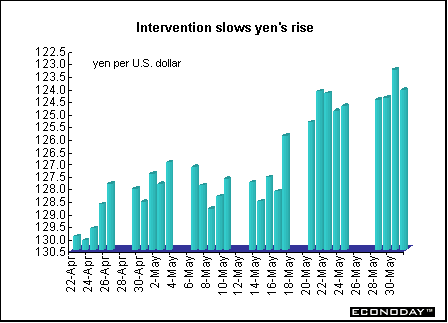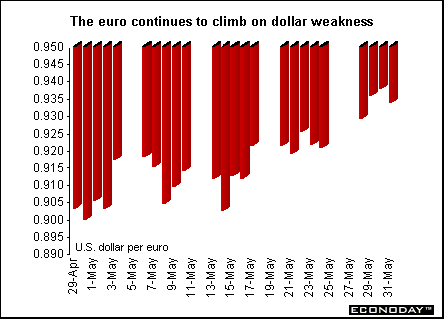CurrenciesThe Bank of Japan intervened in the currency markets on Friday for the third time in 10 days. They took advantage of the news that Moody's Investor Service had lowered its Japanese sovereign rating by two notches to A2 from Aa3. The two-notch downgrade left Japan's rating below those of Botswana, the Bahamas and Chile and on a par with Israel. Senior Ministry of Finance officials warned they would order further intervention if currency moves continue to be inappropriate. Japanese Finance Minister Masajuro Shiokawa said the intervention was the appropriate step since foreign exchange moves had become too rapid. The Ministry of Finance determines that intervention should take place but the Bank of Japan has the responsibility for the actual intervention.  The euro provided most of the action against the dollar last week as investors bought the currency. Increasingly, investors are looking to diversify their holdings geographically to spread risk. Investors have become leery of American accounting standards. Until the Enron debacle, U.S. accounting principals were considered the best in the world. Now the uneven performance and general nervousness of U.S. financial markets have hurt the dollar and have encouraged some overseas investors to move their investments to Japan and Europe. The Bush administration’s insistence that it still supports a strong dollar policy is viewed with skepticism. Lawrence Lindsey, the president’s economic advisor, minimized the dollar’s fall so far and hinted that currency movements were overdone.  |